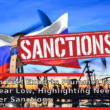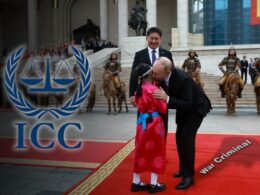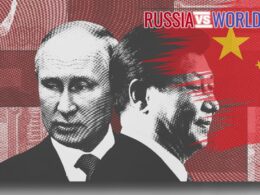Brussels Issues Stern Rebuke as Bratislava Considers Legislation Echoing Russian Tactics
The European Commission has issued a stark warning to Slovakia over its proposed legislation that would require NGOs receiving foreign funding to label themselves as “organisations with foreign support”. This move, reminiscent of similar laws in Russia and recently attempted in Georgia, has sparked concerns about the erosion of civil society and democratic norms within the EU.
European Commission Vice President Vera Jourova did not mince words during her recent visit to Bratislava. “If you follow the Hungarian example on the NGOs law, we will launch an infringement procedure immediately,” she stated, referring to a similar law passed by Hungary in 2017 that was later struck down by the European Court of Justice.
The proposed Slovak law bears a striking resemblance to Russia’s notorious “foreign agent” legislation, which has been used to stifle dissent and independent voices. Earlier this year, Georgia’s attempt to introduce a similar measure led to massive street protests.
This latest development comes as part of a worrying trend in Slovakia under Prime Minister Robert Fico’s government, which has faced criticism for criminal code changes, revamping the public broadcaster, ending military aid to Ukraine, and adopting a more Russia-friendly foreign policy stance.
The EU has been grappling with rule of law issues in several member states, most notably Hungary, where it has withheld funds over concerns about democratic backsliding. Budapest further strained relations by kicking off its EU presidency with Prime Minister Viktor Orban’s controversial “peace mission” to Moscow.
While Fico has acknowledged the EU’s recommendations, he dismissed the criticism as stemming from foreign policy disagreements, accusing the Commission of seeking “obedience”.
The EU’s annual rule of law report, which covers judicial systems, corruption, media freedom, and civil society safeguards, offers non-binding recommendations to all 27 member states. However, the Commission’s threat of legal action against Slovakia underscores the seriousness with which it views this potential infringement on democratic values.
As the EU continues to navigate the delicate balance between national sovereignty and upholding core democratic principles, the situation in Slovakia serves as a stark reminder of the ongoing challenges to the rule of law within the bloc.








